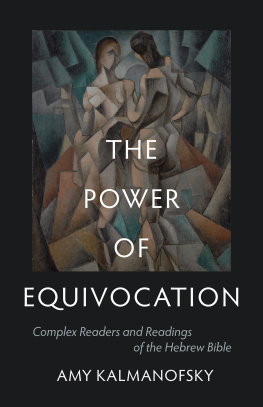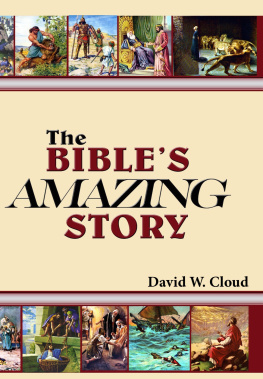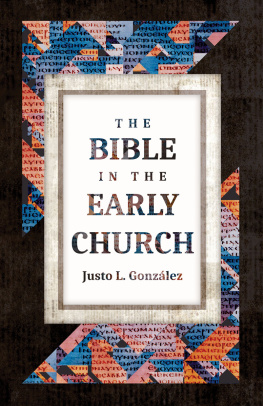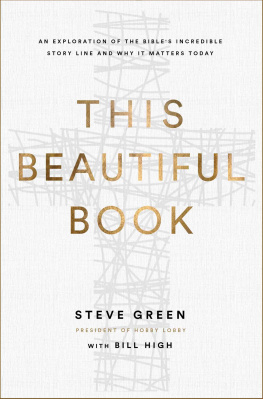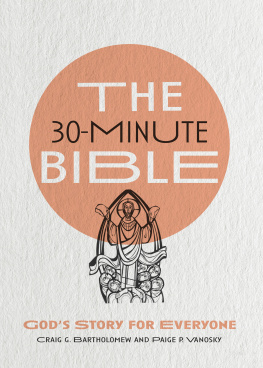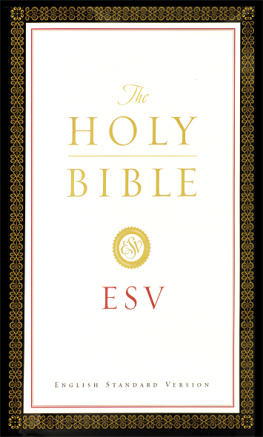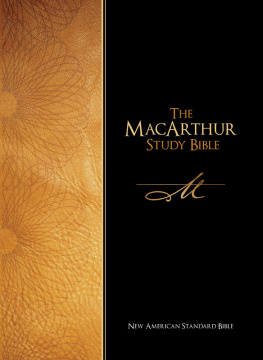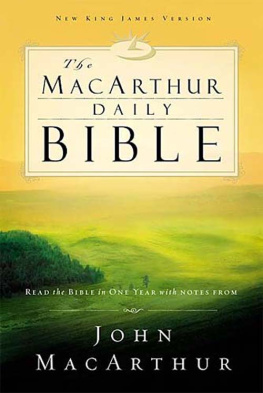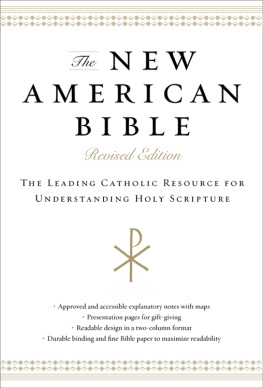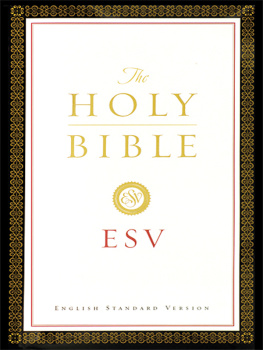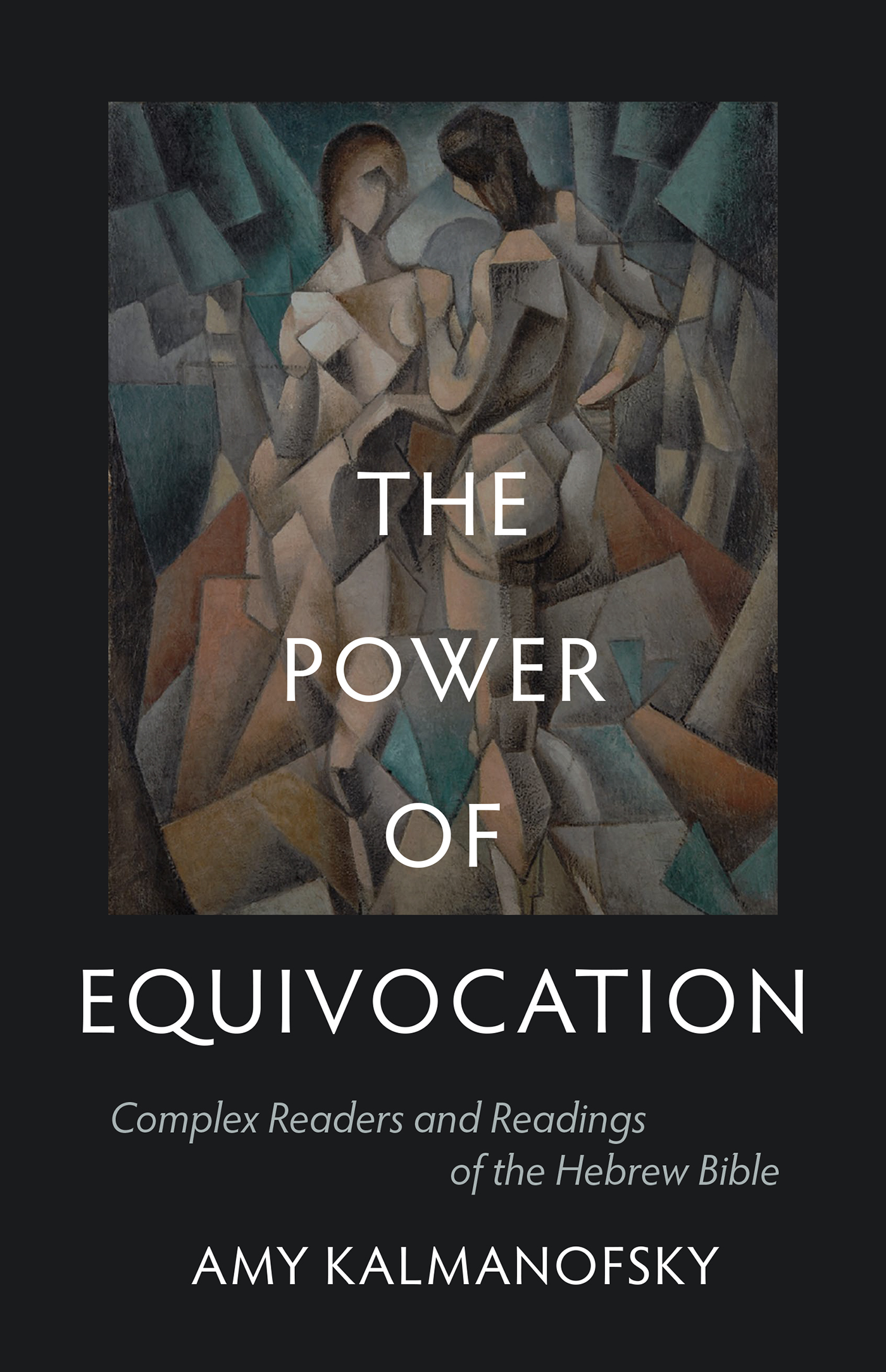
Praise for The Power of Equivocation
Complexity, ambiguity, tensions, paradox, multiplicity. The Hebrew Bible is comfortable with all of these, so why arent we? As a feminist, Jewish interpreter Amy Kalmanofsky helps us see and appreciate the complexities and ambiguities in a number of engaging interpretations of biblical stories of female characters. But she also helps us to be aware of the complexity of us as readers and the multiple roles and identities that impact what we see, or do not see, in the text and in the world. We need this book on equivocal readings of the Hebrew Bible now more than ever, as we, individually and collectively, struggle to regain our footing in a post-pandemic world in which uncertainty and insecurity have become the new normal.
L. Juliana Claassens, Stellenbosch University
The Power of Equivocation is a thoughtful, generous, and deeply feminist reimagining of what it means to read the Bible. Kalmanofsky takes on the contradictions and moral complexities of biblical narrative and makes them the centerpiece of equivocal reading, an interpretive practice that is at once flexible, critical, and affirming. A book for all biblical readers. An unequivocal success.
Rhiannon Graybill, Rhodes College
A joy to read for all who welcome questions more than answers. Kalmanofsky has curated rich readings for those who recognize openly that we inevitably bring our complex selves to a beautifully complex text.
Brittany N. Melton, Palm Beach Atlantic University and University of the Free State
Kalmanofskys latest work is committed to revealing the intentional ambiguities of biblical storytelling, while also acknowledging the complexities of reading the Hebrew Bible as a scholar, a feminist, and a Jew. She adeptly strikes a balance between the personal and the useful that is often elusive for scholars. Following her through some of the most well-known biblical tales and marveling at her illumination of their many complexities was akin to reading a comprehensive travel guide of your hometown: Who knew there was so much to see in something so familiar?
Stephen Wilson, Georgetown University
The Power of Equivocation
The Power of Equivocation
Complex Readers and Readings of the Hebrew Bible
Amy Kalmanofsky
Fortress Press
Minneapolis
THE POWER OF EQUIVOCATION
Complex Readers and Readings of the Hebrew Bible
Copyright 2022 Fortress Press, an imprint of 1517 Media. All rights reserved. Except for brief quotations in critical articles or reviews, no part of this book may be reproduced in any manner without prior written permission from the publisher. Email or write to Permissions, Fortress Press, PO Box 1209, Minneapolis, MN 55440-1209.
Unless otherwise noted, the author considers all Scripture translations to be the authors own.
Scripture quotations marked (NJPSV) are from the New Jewish Publication Society Version. 1985 by the Jewish Publication Society.
Cover image: Jean Metzinger, Deux Nus, 1910-11
Cover design: Kristin Miller
Print ISBN: 978-1-5064-7871-5
eBook ISBN: 978-1-5064-7872-2
While the author and 1517 Media have confirmed that all references to website addresses (URLs) were accurate at the time of writing, URLs may have expired or changed since the manuscript was prepared.
To my , unequivocally
Contents
T his book is deeply rooted in who I am. I am grateful to the family, friends, and colleagues who have shaped me as a scholar, a Jew, and a woman. I am particularly grateful to the people who have shared the classroom with memy teachers and my students. Throughout my life, I have been enormously fortunate to inhabit educational and religious spaces that are open and tolerant, that are defined more by questions asked than answers given, and that understand that intellectual rigor only enriches religious meaning.
I am extremely thankful that I developed as a scholar, a teacher, and a Jew at the Jewish Theological Seminary (JTS). JTS has nurtured my critical and religious languages, helping me to perceive and appreciate the timeless and the time-bound in what I study. Above all, JTS cultivates classrooms that embrace complexityclassrooms in which Bible and Torah flourish and in which students strive to understand what they study while they make meaning from it.
I have no doubt that these classrooms and students contribute to the rich and complex interpretive tradition of the Hebrew Bible and will ensure its future. This book grew from those classrooms and students. I am indebted to them for what they have given me and grateful for what I know they will give to others for generations to come.
An Introduction from an Equivocal Reader
A cademics write books that reflect personal talents and interests and that potentially carry them up the career ladder. With each book, an academics voice grows looser. Unsurprisingly, job security sows confidence that enables one to pursue ideas that are less well-traveled or are more innovative or even controversial. It also fosters a willingness to reveal ones self and biases more openly.
This is my fourth book and my most personal. It comes from a desire to address who I am as a reader and scholar of the Hebrew Bible. At its core, it is a book about complexitythe Bibles complexity. But it is also a book that reflects the complexity I bring as a reader to this inherently complex text. I am a complicated reader of the Hebrew Bible. I read the Bible as a Jew, a feminist, and a scholar. Depending on the context, I may foreground differently which persona I present first, yet all three perspectives are integral to who I am and inform how I engage with the Bible.
To admit this in a book intended for a wide range of readers, including scholars, is unsettling. Scholars rarely own so much subjectivityor perhaps the kind of subjectivity that admits a religious orientation. For some, it would be better that I admit that I read the Bible more as a woman than as a Jew. After all, my femaleness connects me to more people and is arguably more integral to who I am. Saying I read the Bible as a woman seems more like an objective truth than saying I read as a Jew.
In the world I inhabit, in which secularism is more the norm, my religious affiliation is a matter of personal choice. For me, it is precisely the choice to read as a Jew that makes it an essential part of my identity. I cannot help but read the Bible as a woman, since it is the most natural and all-encompassing part of my identity. But I actively choose to read as a Jew, and therefore, I must decide what that means and how my relationship to the Bible relates to my identity as a Jew. More precisely, I must consider how my Judaism impacts my scholarship, which has focused on gender construction in the Bible. I have come to believe that there is an inherent tension in reading the Bible as a scholarparticularly a feminist scholarand as a Jew. This book is my effort to address and embrace this tension.
At its heart, this is a book about complexity. It derives from a need to address my contradictory impulses as a reader (which I outline later on), but it focuses in the main on the intricacy of the Bible. Without question, the Bible is a literarily complicated book on the macro- and microlevels. On the macrolevel, the Bible is a book of books that spans literary genres and was composed and edited over generations. On the microlevel, each narrative also comprises different literary genres and reveals its own editorial history. Poetry interrupts prose. Law interrupts narrative. A narrative includes contradictory details. Certainly at the editorial level, both macro and micro, the Bible is not uncomfortable with contradiction or inconsistency. The Bible incorporates two variations of a creation story
Next page
